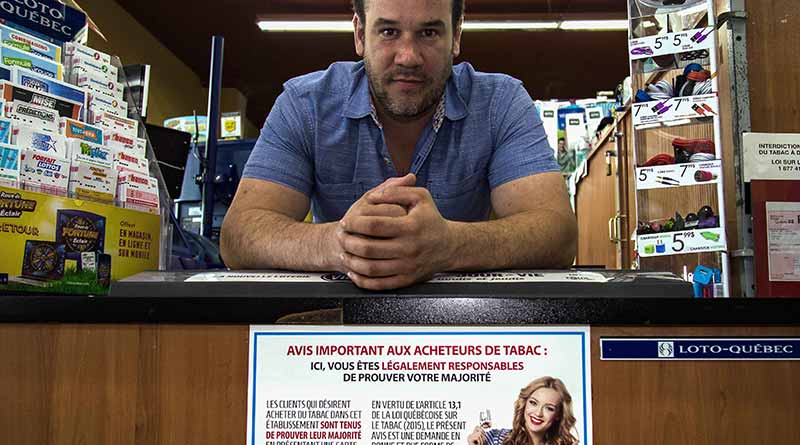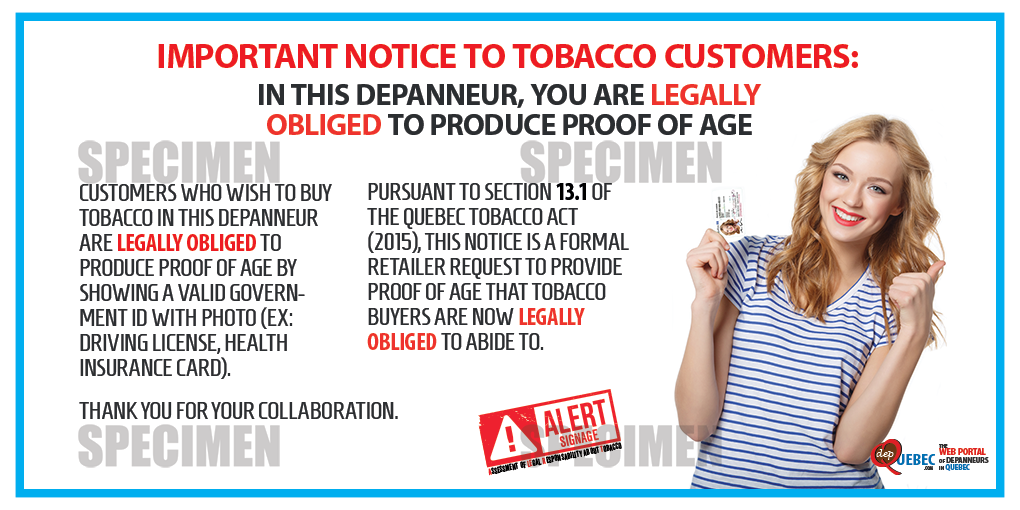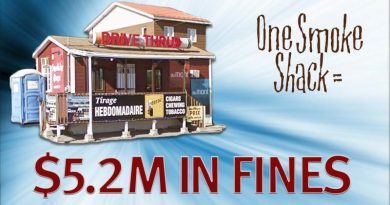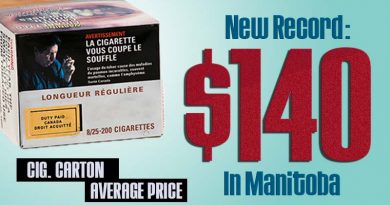ALERT Signage: A New Tool To Better Prevent Fines AND Sales to Minors
Offered exclusively HERE on the DepQuebec portal, the ALERT Signage Tool provides depanneurs and tobacco retailers with a new tool to better prevent the sale of tobacco to minors, better detect government mystery-shopping inspections and better defend themselves in court in the event of a violation.
The signage takes advantage of a new provision in the Quebec Tobacco Act (2015) that gives retailers more power to require tobacco customers to produce proof of age.
The amendment recently adopted in the Tobacco Act reads as follows:
| Tobacco Act before 2015 | Tobacco Act after 2015 |
|---|---|
| 13.1. A person who wishes to purchase tobacco or to be admitted to a cigar room could be required to provide proof of age. | 13.1. A person who wishes to purchase tobacco or to be admitted to a cigar room or to a specialized retail outlet whose operator is exempt from the application of section 20.2 is required to provide proof of age on the business operator’s or an employee’s request. |
As can be seen, the Act was clearly amended to “force” a customer to prove his age at the request of a retailer or his employee.
So that when a customer is asked to show ID, he or she is now “legally obliged” to do so according to law.
This is indeed the real intent of the legislator. This amendment was added at the last minute following, among other things, the pressure of the convenience store industry on the constraints of carding and the difficulty of convincing customers to comply.
When this amendment was tabled in parliamentary committee on November 10, 2015, the Minister of Public Health, Lucie Charlebois, stated that it aimed to give more power to the retailers over their customers when it comes to verifying their age:
So I have an amendment that makes it possible for retailers to ask for it, the identity card, and that ensures that people will not be able to refuse, but that remains the responsibility of the retailer. (…) The purpose of this amendment is to oblige a person to prove that he is of age at the request of the operator when buying from a tobacco retail outlet.
The conventional request mode is verbal and discretionary. However, there is nothing to prevent convenience stores from using posters in addition to ensuring that section 13.1 is applied to all tobacco customers automatically and without exception.
Hence the novelty brought by the ALERT Signage, namely to display a FORMAL WRITTEN NOTICE in a convenience store intended for ALL tobacco buyers informing them officially that in such store they are subject to section 13,1. This ensures that noticed customers become legally responsible to prove their majority, regardless of how old they look.
According to Éric Taillon, a lawyer with Guérin, Lavallée & Associés, convenience stores and other tobacco retailers have everything to gain by leveraging section 13.1 to force tobacco buyers to prove their age:
“By using the ALERT signage as an additional means of noticing consumers, retailers are doing everything they can to prevent the occurrence of an offense and to defend themselves in court in the event of a offense,” – Éric Taillon, Guérin Lavallée & Associés.
Impact of ALERT Signage on prevention
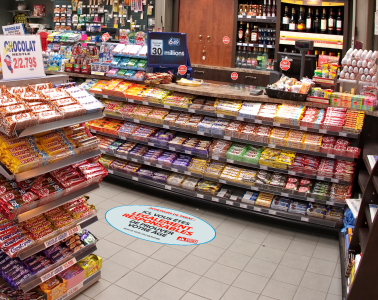
Tobacco customers have their share of responsibility to prevent the sale of tobacco to minors: retailers already take all the financial and legal risks associated with this sale.
Underage kids trying to buy tobacco in a convenience store will also think twice before trying.
Also, refreshing the in-store message will help raise attention and awareness.
Impact of ALERT Signage on government mystery-shopping inspections
In addition to fostering prevention, ALERT posters are likely to make things a bit harder for government underage mystery-shoppers attempting to buy tobacco (an average of 4,000 inspections per year).
The current modus vivendi of assistant-inspectors is to buy tobacco without saying anything. In a convenience store equipped with ALERT posters, this could possibly be interpreted as a breach of their legal obligation to prove their age (without any guarantee, of course, depending on the cause, the magistrate, etc.). So this is an added benefit and protection for retailers.
To clear himself of such obligation, an inspector can say, for example: “I do not have any IDs on me … can I have a cigarette pack anyway? “. However, by doing this, he will become more easily detectable, which is another benefit for retailers.
But, to use a driving analogy, if the current system is equivalent to driving on a highway with policemen well hidden behind a bush, the ALERT posters could result in the same police being hidden behind a bush but with a few less leaves to hide him, that’s all.
YET, THIS DOES NOT MEAN THAT CONVENIENCE STORE OWNERS LET THEIR GUARD DOWN, ON THE CONTRARY: THEY MUST CONTINUE WITH GREATER VIGOR TO DO EVERYTHING THEY CAN TO AVOID SELLING TOBACCO TO MINORS, AS THEY ARE DOING NOW VERY SUCCESSFULLY.
The highest fines in the world
Quebec has – for some reason – the highest fines in the world when it comes to the sale of tobacco to minors:
- 1st offense: $ 2,500 min, $ 62,500 max, no suspension.
- 2nd offense: $ 5,000 min, $ 125,000 max, one month suspension of sale.
- 3rd offense: $ 5,000 min, $ 125,000 max, three months suspension of sale.
Knowing this, convenience stores owners should not hesitate a second: they should all take full advantage of the current Tobacco Act provisions in their favor.
Convenience stores owners can thus do more to protect themselves from costly fines, penalties and headaches from a prosecution… they can order the ALERT signage available in various formats, per unit, in kits or even downloadable by clicking HERE or by visiting the DepQuébec store.

